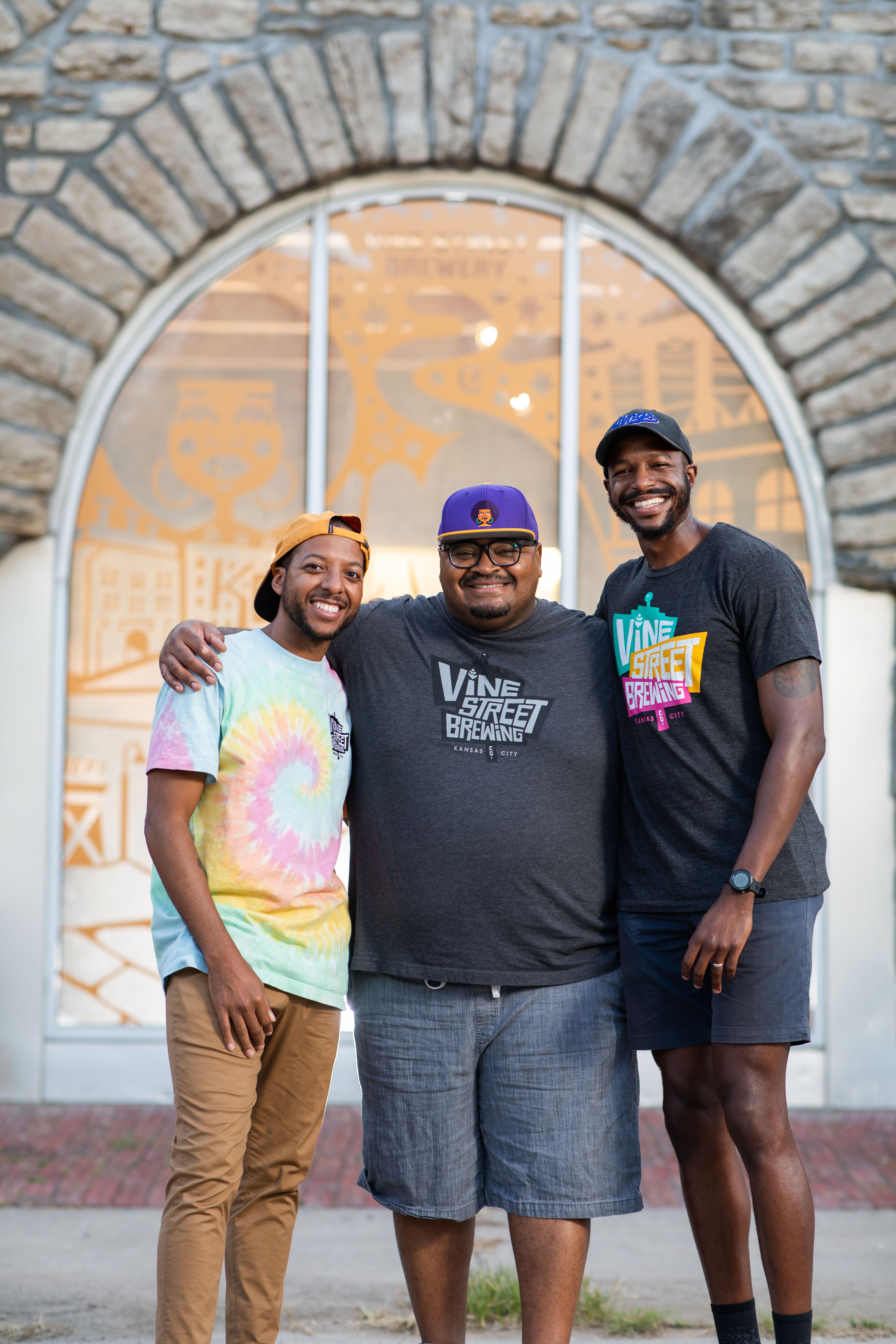
4 minute read
The Brews Brothers
by KC Options
The founders of Vine Street Brewing Company, Missouri’s first Black-owned brewery, aim to make beers worthy of Kansas City’s iconic 18th & Vine District.
By Katie Van Luchene

An excellent beer requires the perfect balance of ingredients. It’s the same with a business partnership like Vine Street Brewing Company. Elliot Ivory, an engineer by trade, provides the process. Woodie Bonds, Jr., known as the prankster by fellow line workers at Ford Motor Company, is like the hops, bringing flavor and spice. And musician, marketer and urban activist Kemet Coleman adds the yeast, giving beer — and the brewery — its kick and fizz.



The trio is preparing to open their doors at 2000 Vine Street, which will include a brewery, taproom, event space and back patio. Chef Shanita McAfee-Bryant’s training kitchen and restaurant, The Prospect KC, will take a portion of the twolevel space.
Vine Street Brewing will open to a robust fan base thanks to recent collaborations with area brewing companies including Strange Days, Boulevard and Red Crow. And Woodie gained cred for his ‘Hip Hops Hooray’ beer festivals, which eventually attracted over 40 regional craft brewers. Elliot attended the event in 2019 and noticed Woodie for more than just his energy; he was the only other Black brewer there.
Their friendship grew despite divergent personalities and styles. Elliot, a professed beer nerd who studies techniques, makes brews that Woodie admires for their clean, fresh taste. Woodie is the spontaneous one, not afraid to try crazy combos. “My first attempt was a margarita-inspired beer with tequila. It was heartburn in a glass. Let’s just say I’ve improved my technique since then.”

Awards and accolades attest to that. But no trophy can top the comment his daughter made while visiting family in Texas. “My dad’s kinda famous,” the 11-year-old said. “He owns a brewery in Kansas City.”
Kemet Coleman’s contributions are, according to his partners, his vision, citywide connections and the ability to throw one heck of a party, like the one he recently hosted in the event space next door.

Along with beer tastings, party attendees received a T-shirt introducing the Vine Street logo created by Whiskey Design. The bold graphics also adorn the brewery’s windows featuring elements like a jazz player, a panther and Maris, a beauty with an afro and huge hoop earrings. When asked about her, Woodie laughs and explains she’s based not on a “who” but a “what.” Maris Otter is a malt barley that imparts a slightly nutty, crisp taste to beer.
This is bigger than beer. It's not just important for this town, but for this address.
While tweaking the 10 or so brews they’ll offer when Vine Street opens, the partners have time to reflect on the significance of being the first Black-owned brewery in Missouri. “This is bigger than beer,” says Elliot, “It’s not just important for this town, but for this address.”
18th & Vine earned the distinction of “Jazz District” in the 1920s, when it became a thriving hub for Black music and business. Throughout the next several decades, jazz fans flocked to the area to hear icons including Count Basie, Hot Lips Page and Mary Lou Williams, as well as KC’s own Charlie “Bird” Parker and Queen Bey, “KC’s Ambassador of Jazz.”
In addition to its long reputation for music, the 18th and Vine District held the offices of the Kansas City Monarchs, a nationally acclaimed baseball team in the Negro National League, throughout the 1920s and 1930s, and is still home to offices of The Call, a long-running newspaper serving the Black community.
Now, Elliot, Woodie and Kemet want to be part of the district’s renaissance.
“This soil is sacred,” Kemet says. “We realize what an impact we can have on this area by creating a destination, a place where everyone feels welcome.” And if the Royals build a stadium nearby? The three laugh and agree they’d be fine with it. “Baseball and beer,” says Kemet. “Goes together like peanut butter and jelly.”

We’ll toast to that.










